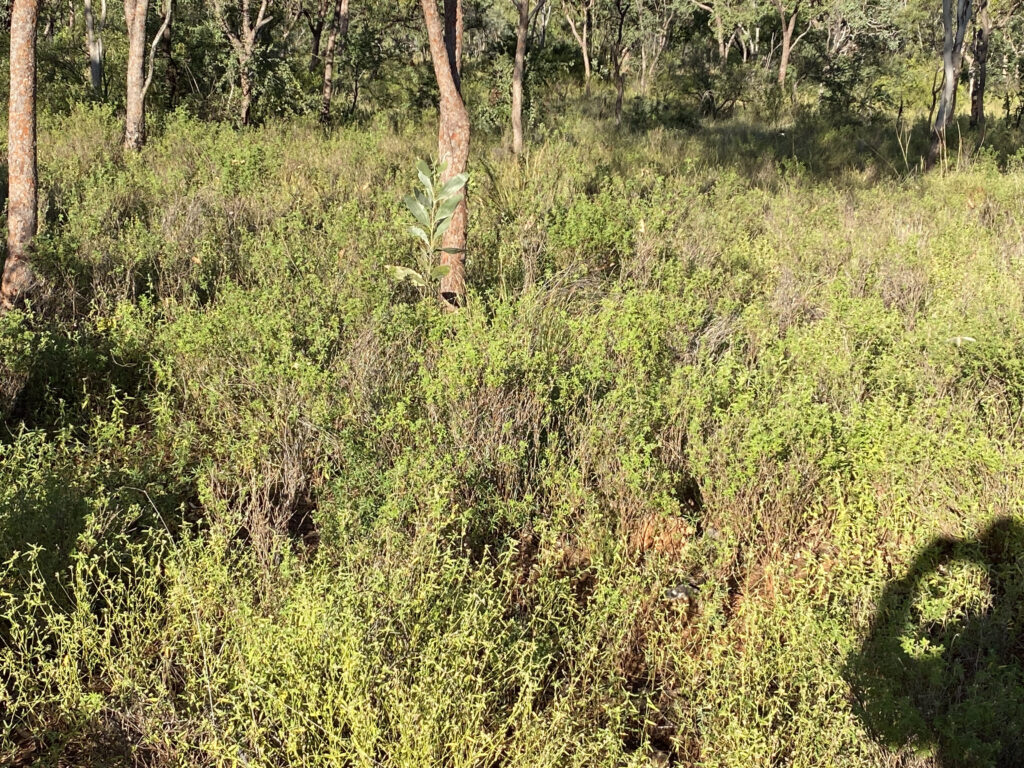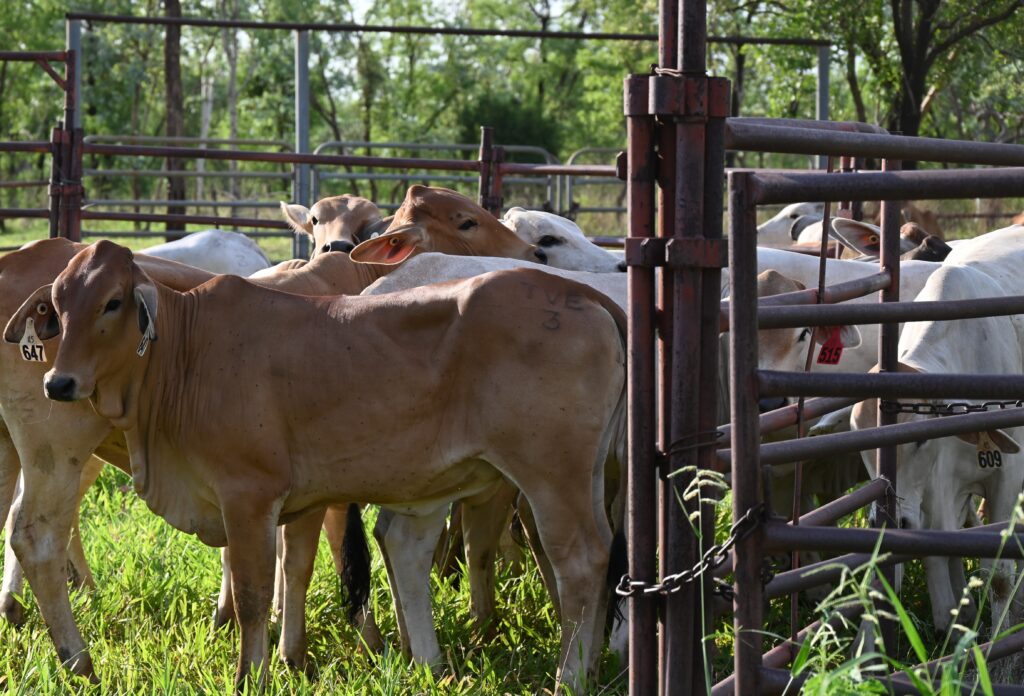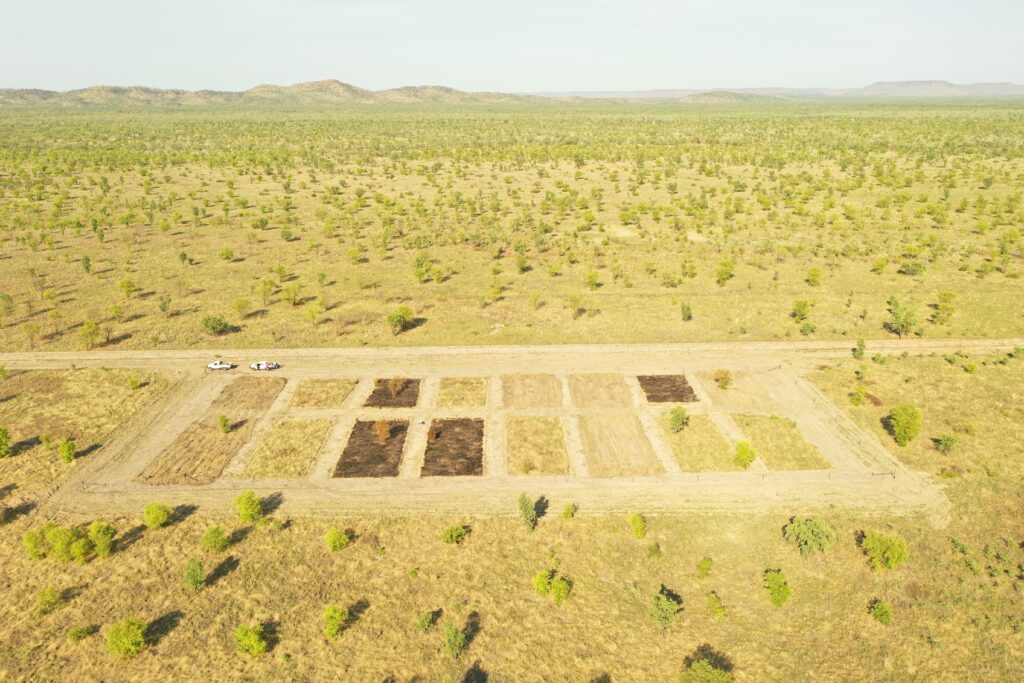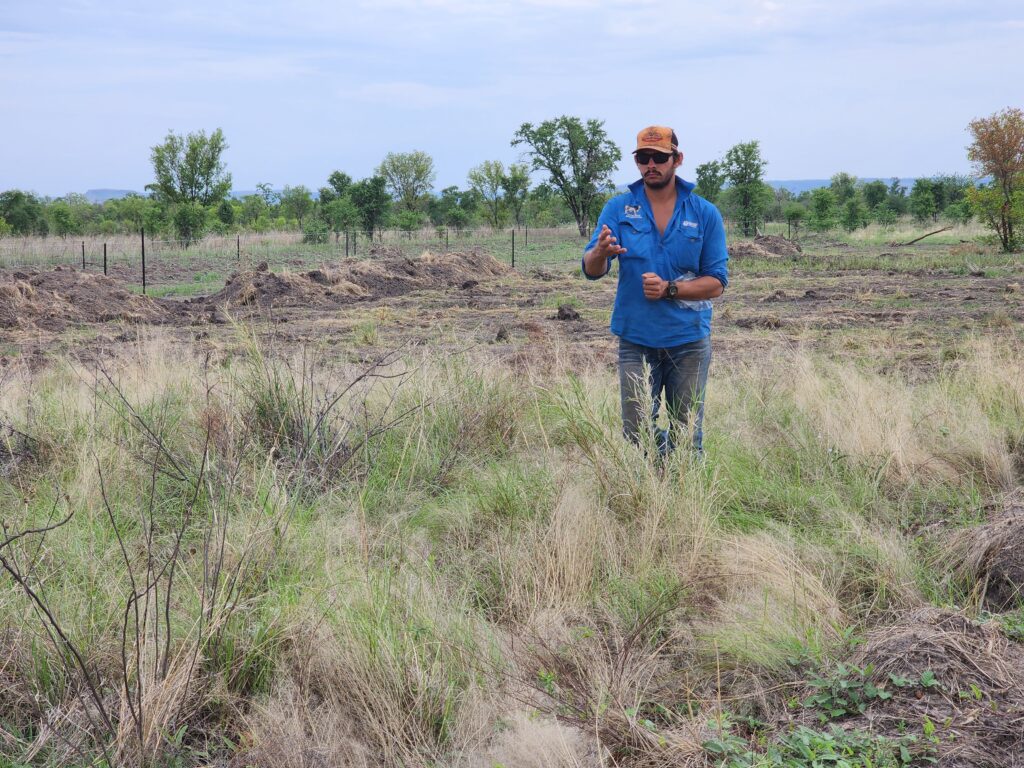Victoria River District Legume Establishment Demonstration
Forage legumes are a hot topic in the Northern Territory (NT) due to their high levels of protein and nitrogen-fixing capabilities. The Department of Industry, Tourism and Trade (DITT), in collaboration with the University of New England (UNE), has developed legume establishment trials at three commercial pastoral properties and one research station in the Victoria River District. This project started earlier this year, in June 2023, as a pilot study, and the team aims to continue research even after the project’s completion in June 2024.

Aim
Regional advisory groups have identified augmenting native pastures with legumes in the 600-1000mm annual rainfall zone as a high research priority. The main barriers are limited knowledge about regionally adapted varieties of legumes and the struggle to achieve a satisfactory germination. This project aims to:
- Produce a live weight gain benchmark for weaners grazing native pastures containing legumes
- Trial different methods of establishing legumes in a native pasture and
- Monitor augmented pastures on commercial properties
The three main components of the project are:
1. Weaner live weight gain (LWG) on existing legume pastures at Victoria River Research Station
In July 2023, 33 heifers were inducted into a paddock where a substantial amount of stylo had been identified. The native grasses in this paddock include Black Spear Grass, Pigeon Grass, Kerosene Grass, Limestone Grass and some Buffel Grass.
A control mob was inducted into another paddock where there were little to no introduced legumes. The animals were weighed prior to being inducted to the paddocks in July and were weighed again in September. Another weight will be collected post wet season in May 2024.
Soil samples were taken from both paddocks prior to the project starting and faecal samples are taken every 3 months.

2. Legume Establishment Demonstration at Victoria River Research Station
The demonstration uses different seed bed treatments:
- Direct seed into existing native pasture,
- Direct seed after fire,
- Direct seed into lightly graded surface,
- Control with no legume or treatment,

and different sowing time treatments:
- Early sowing – after a certain amount of rainfall in a specific timeframe,
- Late sowing – just prior to an expected monsoon event or significant rain forecast.
Each 10x20m plot will be monitored for legume species and number of seedlings/m2 after the wet season.

3. Monitoring commercial property establishment trial
Three commercial properties in the Victoria River District will expand plot trials into commercial size paddocks. Seven sites have been selected varying from 10ha to 400ha. Each site will look at different seed bed preparation and management strategies, including burning and grazing. All sites will be sown with a 3-species legume mix seeded via helicopter. All sites will be monitored post wet season. A minimum of 40, 1m x 1m quadrats per site will record the number of legume seedlings and the species. Each quadrat will also record:
- Top four native pasture species
- Yield estimate in kg/ha
- Percentage of quadrat covered with vegetation (total ground cover)
Progress
Fact sheets, time lapse imagery and paddock walks will all be part of this project.
To keep updated on this project, keep an eye on the @AgricultureNT Facebook page where we will post photos and videos of field work, and results once they are collected.
For more information on this project, you can visit the project website or please contact:
Project leaders
David McNeill, UNE Project Leader
Caz Pettit, DITT Project Manager
This project is supported by the project Overcoming the Knowledge Gaps, through funding from the Australian Government’s Future Drought Fund.